By NINA CHIKANOV
With the aim of improving my Spanish and getting the most out of my abroad experience, I jumped at the chance to stay with a Spanish family. I didn’t really know what to expect coming into it, besides the fact that I didn’t have to buy my own shower towel and that breakfast and dinner would be provided for me every day. In fact, we had no idea who our host family was or what area of Madrid we’d be living in until program orientation once we arrived in Spain.
Turns out I’d be living with a family of four – Pura, David, and their kids Sofia and Pedro, aged 16 and 19 respectively. Another American student from New York named Jasmine was also staying with us in the other free room in the apartment. The location of my homestay ended up being really convenient for exploring the city as well as commuting to school or other areas of Madrid every day. I lived right off of a metro stop on the blue line and about a 10- minute walk from Sol – the center of Madrid – and a 20-25 minute metro ride from the study center in Chamberí. This was the neighborhood of Lavapiés, which I soon grew to know and love.
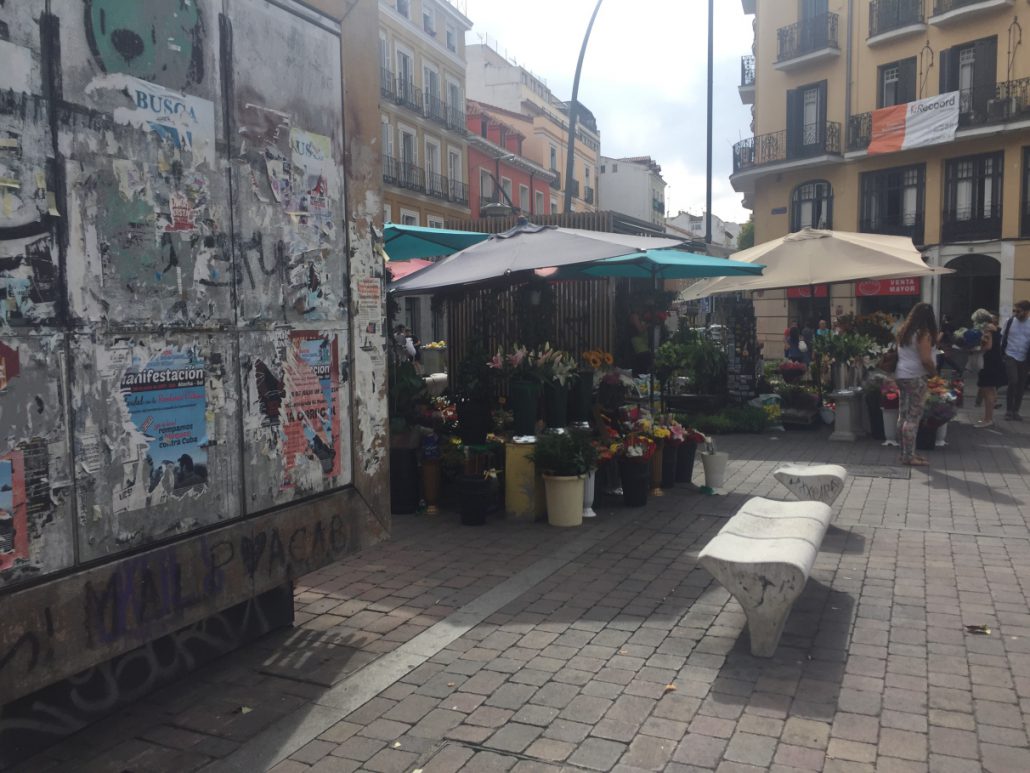
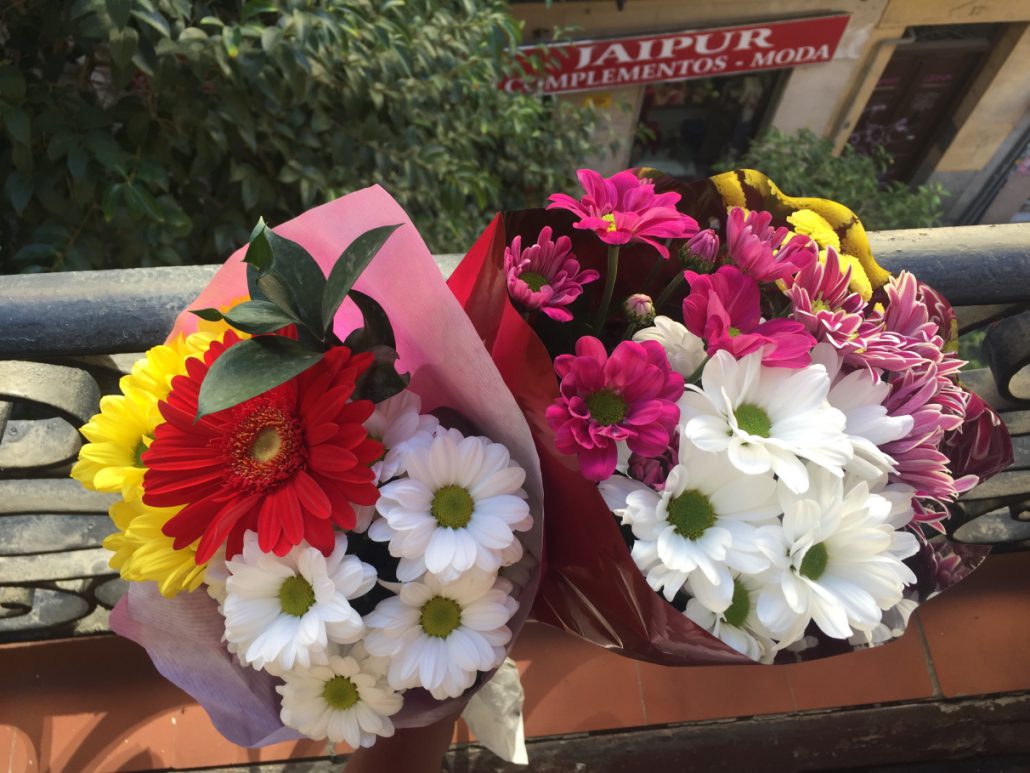
On the top, flower stands outside of the metro stop closest to my homestay. On the bottom, flowers I got for my host mom and her daughter on their birthdays.
As soon as I arrived, my host mom showed me to my room at the end of the hall. The whole unit consisted of 4 bedrooms, 1 master bedroom, a living space, a kitchen, and two bathrooms. While the apartment wasn’t super big, it made good use of space and was a nice place to live in the middle of the city.
My room came with a wardrobe with two drawers, hangers, and a top shelf as well as a desk, twin bed, and place to store extra blankets. The amount of storage was comparable to what I had in my dorm room at UCLA with slightly less drawer space. There was also space under the bedside table with shelving for books and space for a couple pairs of shoes. All in all, I had plenty of storage space for my things :-).
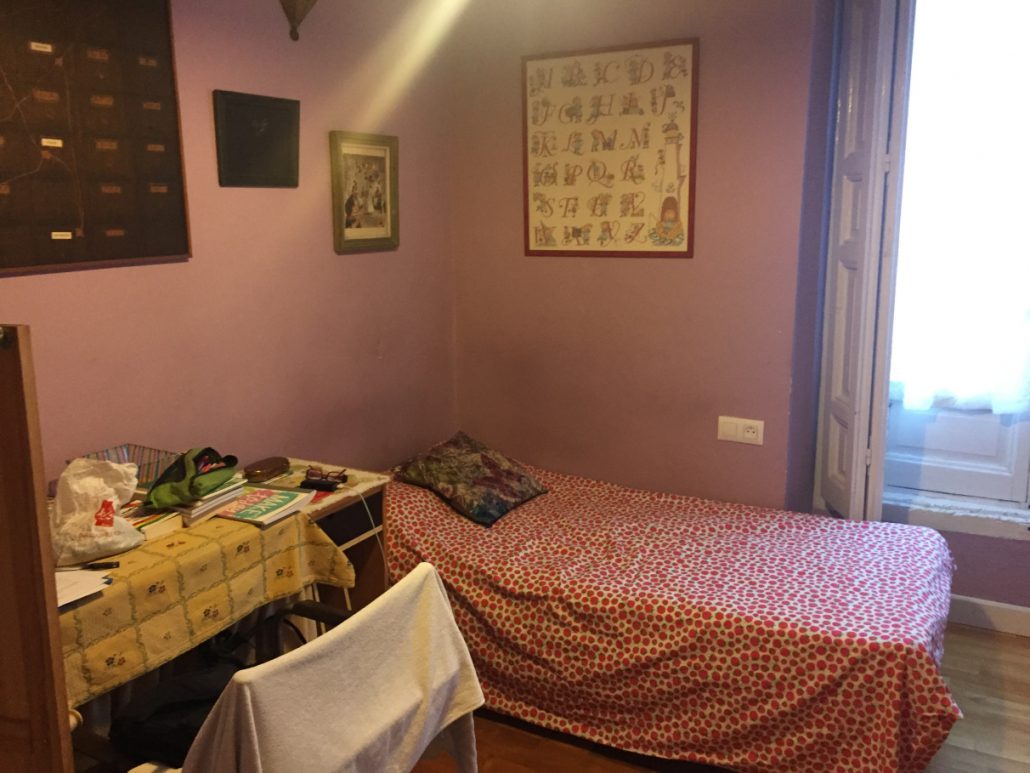
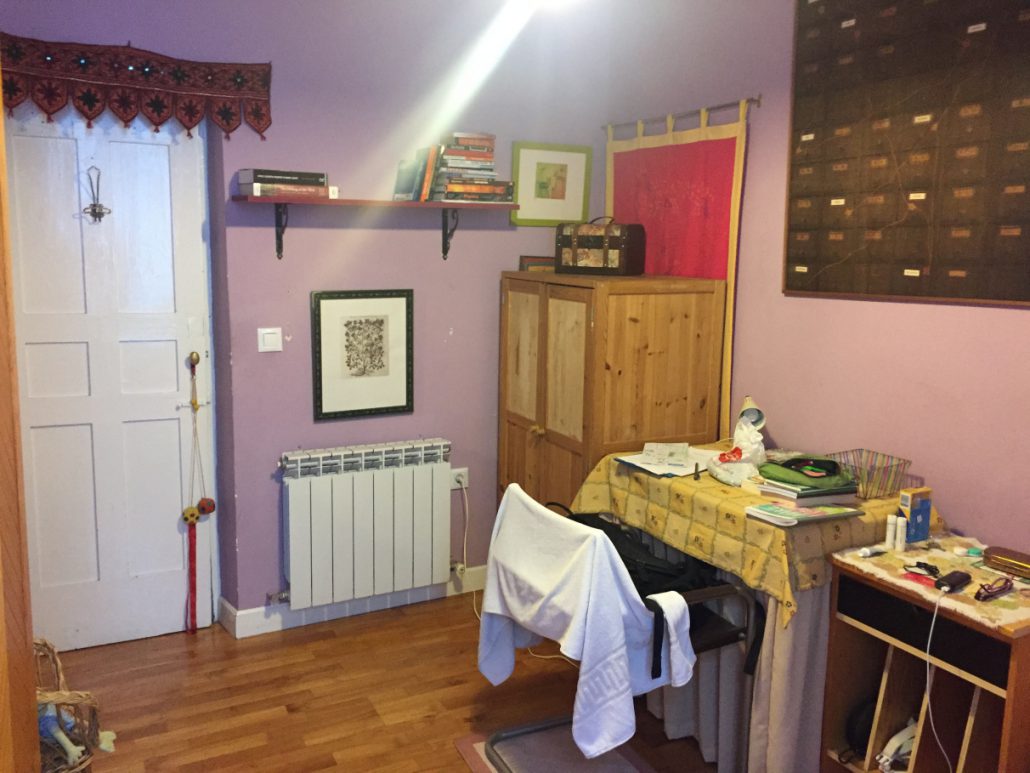
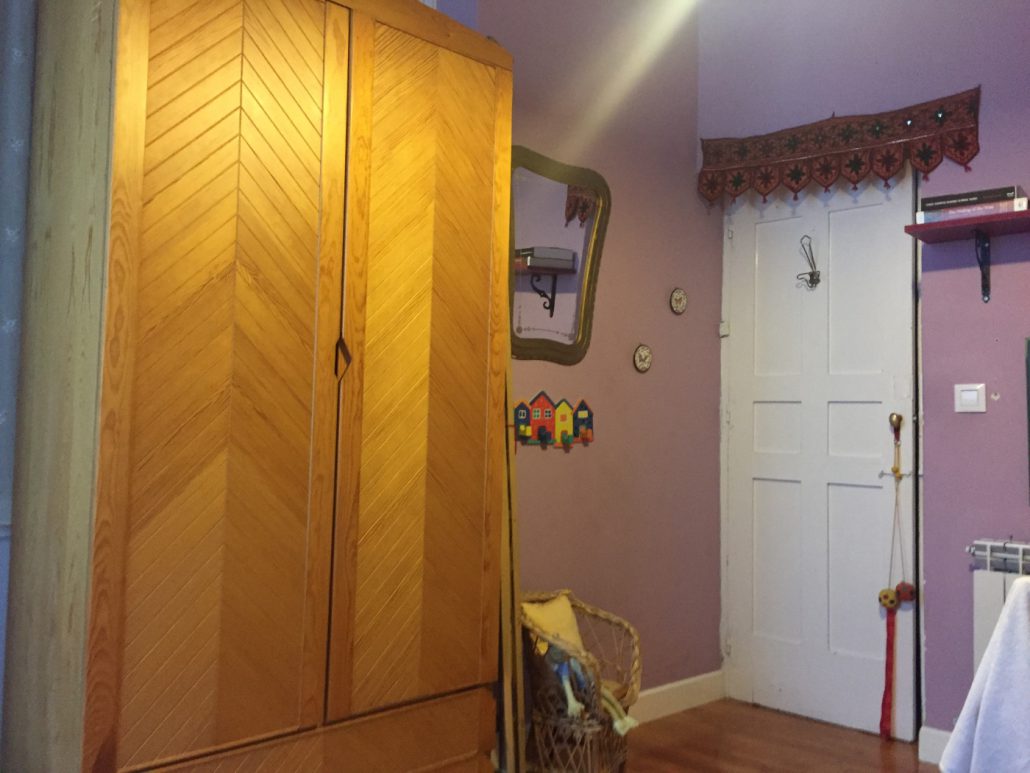
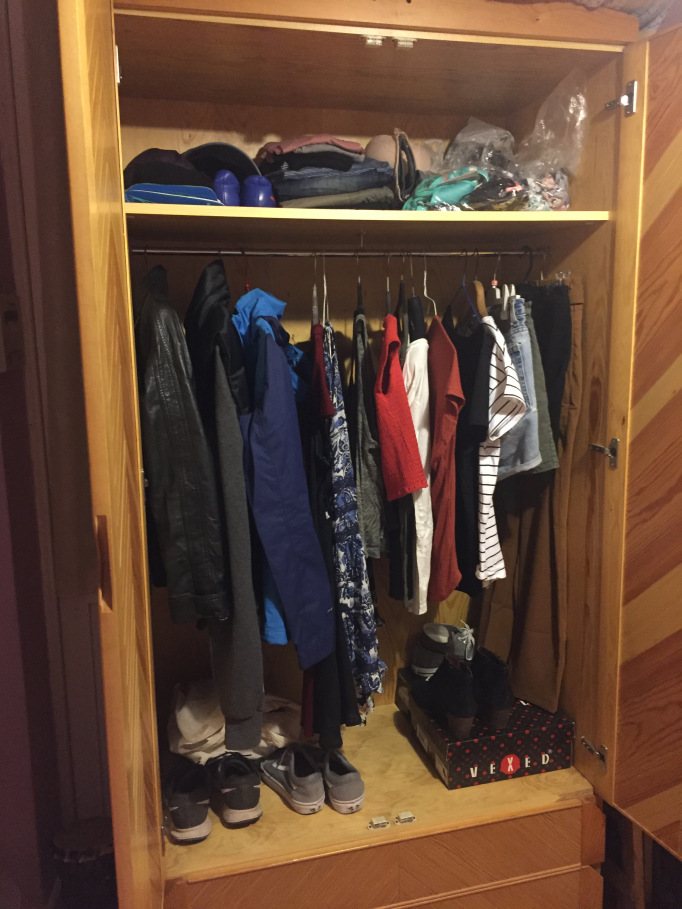
The best part of my room was that the window opened right out into the street – I definitely took advantage of this during the warmer months when the weather was absolutely spectacular.
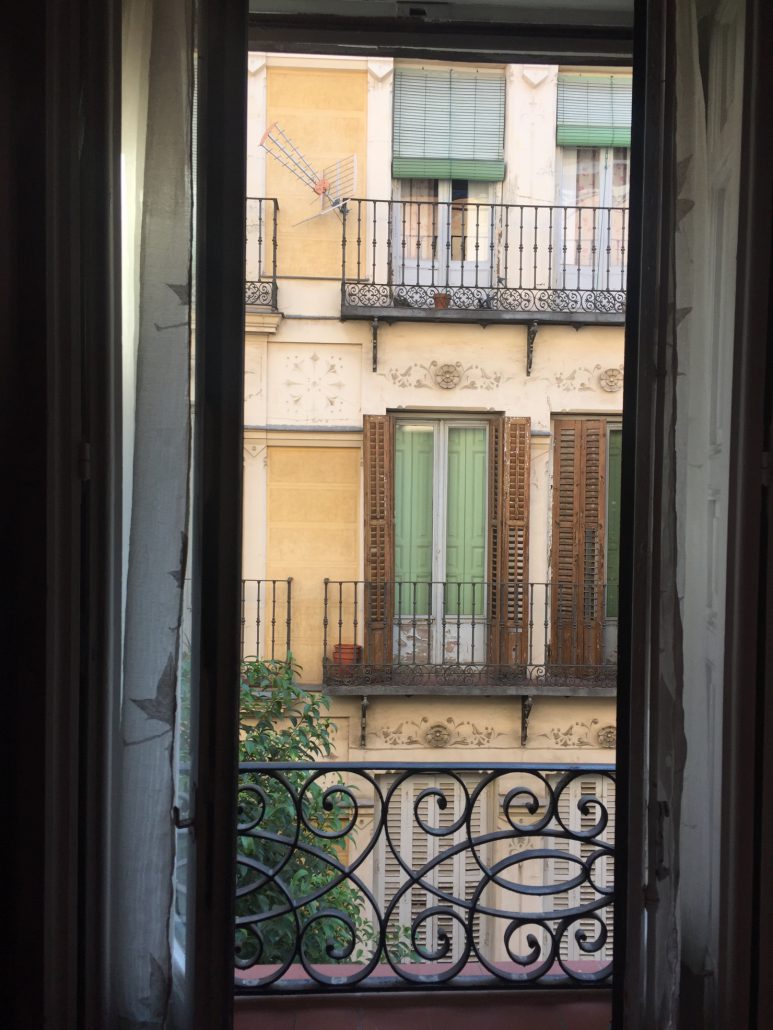
I soon also found out that Madrid never sleeps, and being in an apartment in a rather trendy area close to the center of the city meant dealing with some rowdy (but goodhearted) people at night who thought they were destined to be on the next Spanish Idol – good thing I can fall asleep easily☺
I also had access to the bathroom next to the main entrance. It was smaller than the one I was used to at home and in the dorms, with enough room for a toilet under the sink, two storage cabinets, and some bins pinned to the wall, as well as a shower (box).
I’ve never really seen a shower box before, and this one came with a shower-head that was in no way attached to the wall, meaning I had to hold it with one hand while washing with the other. There was enough space for my body, but it was a bit difficult to move fully around with the allotted space. But again — there was space for everything I needed…it was just a tighter squeeze than usual 😛
I also had to be more mindful of my water usage, turning off the tap whenever I didn’t absolutely need it, since water is apparently more expensive in the city (as is electricity – this means turning off lights in rooms when not necessary and unplugging chargers from outlets when leaving the house). However, Madrid tap water is some of the freshest water I’ve ever had, so filling up my reusable water bottle was never a problem.
In terms of kitchen-use, getting tap water from the sink was basically the only thing I could do in the kitchen by myself. Since my host family prepared meals for me (even though breakfast was typically very minimalistic and included tea/coffee with a pastry, toast, or cereal), I wasn’t allowed to store food in the fridge or use the oven or stove.
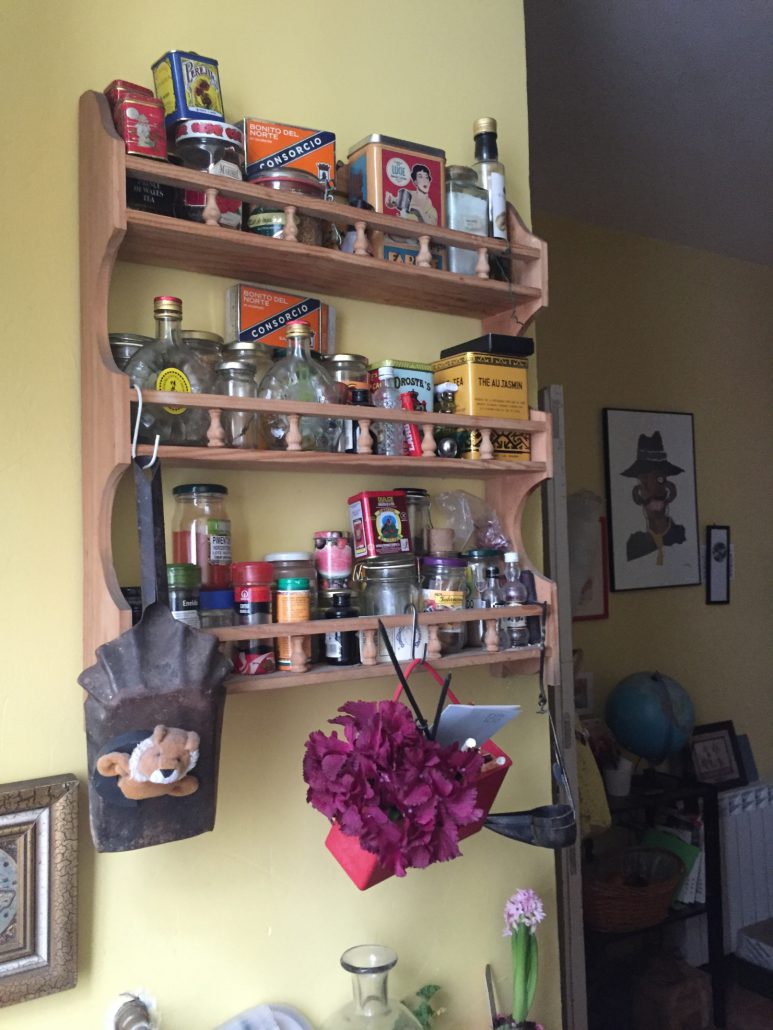
For the most part, I didn’t really need to use the kitchen anyways since I ate lunch outside of the house in between classes, but I felt restricted since I couldn’t make myself tea as regularly as I normally do and lunch had to be bought the day of instead of prepared the day before. I wasn’t completely restricted from tea, but I had to ask my host family to boil water for me instead of doing it myself, which seemed a little unnecessary for such a trivial task.
Otherwise, I was expected to make myself part of the family and abide by already-set household rules. This meant laundry day was set on Fridays and all dirty laundry was to be placed in a bin and left out before I left the house for the day or for the weekend. Dinner was also set for 9 PM for me and Jasmine and would always be provided unless we notified our host mom that we wouldn’t be eating at home that night.
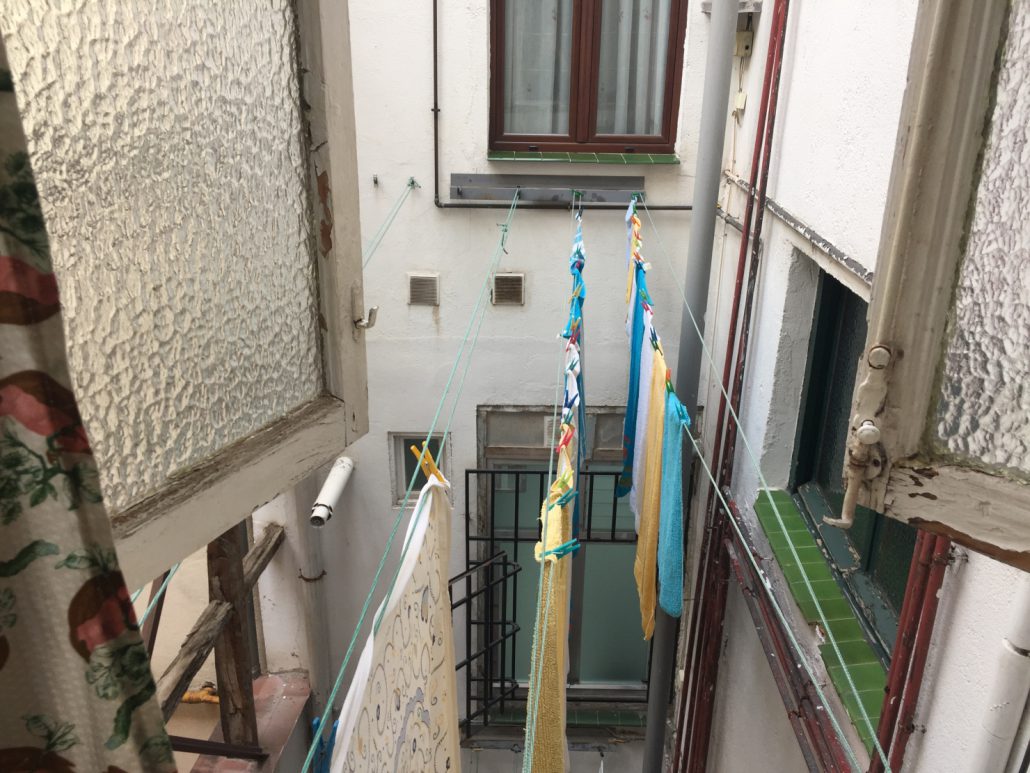
The set time – while late by American standards – was very typically Spanish and fit my schedule well, giving me enough time to run errands or explore after classes.
While it would vary day by day, dinners were also the most social part of my day with my host family. I found myself having long chats with Pura or David (my host parents) over meals and catching up with Sofia and Pedro (my host siblings) at times also. It was nice to interact with Spaniards my age since I could pick up certain slang from them and learn about relevant things that teenagers talked about nowadays in Madrid. They were also interested in my life at home and would ask me questions about California and my lifestyle, for example.
They also tried to help me out with my Spanish-speaking abilities and would answer any random questions I had. While we weren’t the best of friends, we definitely had some good laughs and bonded over mutual experiences.
I also really appreciated living with another American in the same homestay. Since starting college, I’ve always lived with roommates – so this was a similar situation. It was nice to have an English-speaker to share all the moments that I couldn’t yet properly explain in Spanish.
Jasmine was also there for the spontaneous midnight runs to the nearby alimentación when I was craving Oreos as well as the slightly more planned menu del día weekend meals.
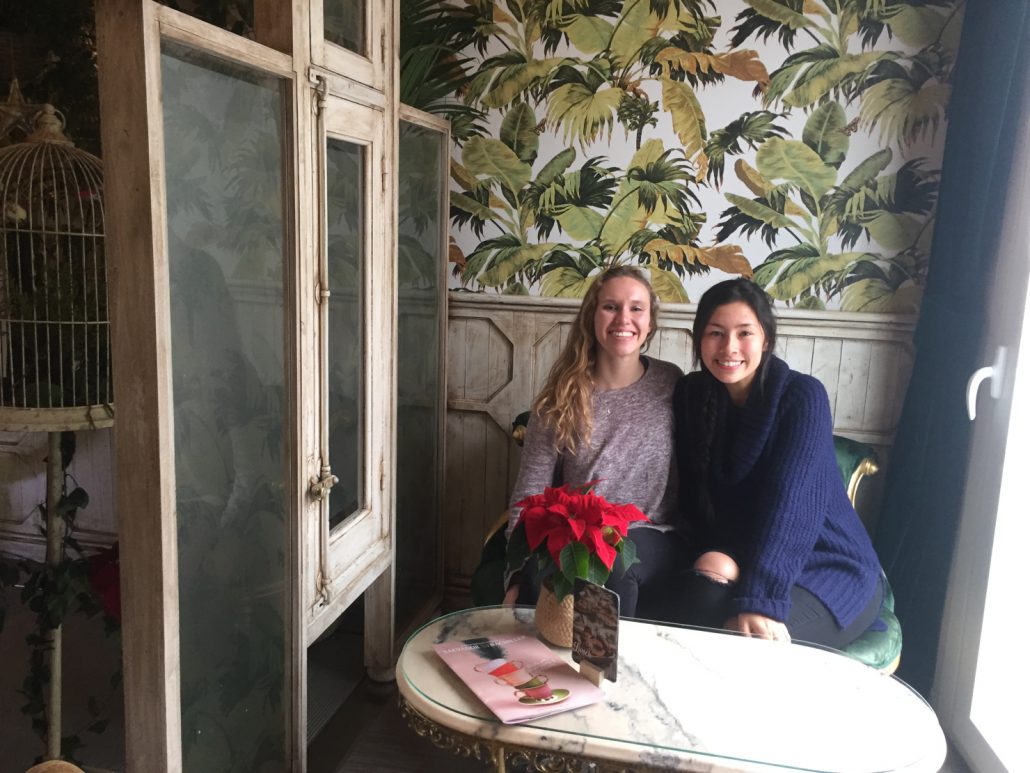
We also bonded over the shared experience of getting locked out of the apartment because of the fidgety door, and we definitely lost socks to each other over the 4 months of living together.
While the homestay definitely exposed me to Spanish culture and helped me with my language development (not to mention saved me the meal prep time for dinner and let me explore traditional Spanish foods), the immediate sense of community that those living at apartments experienced was not initially present here. This isn’t to say I never hung out with those in the apartments, but I did have to coordinate meetups more often than I would have if I lived closer to them.
Regardless, I don’t regret my homestay experience at all. I don’t think my independence was in any way compromised by living with a family either. In fact, they encouraged me to go enjoy Madrid nightlife and explore other parts of the country, Europe, and surrounding areas (my host mom loved Morocco and gave me very excited recommendations when I visited).
Being with a family also helped create a cozy atmosphere. Of course I felt homesick at times, but having someone around to chat with made me feel more at home. ☺
All in all, I think homestay is a unique experience that all those going abroad should highly consider, especially for purposes of language development and forcing themselves out of their comfort zone. Living in a city apartment gave me an excuse to really get to know my neighborhood and do a lot of solo-exploring. The same element that made it difficult to hang out super often with those in apartments also made me more independent and fueled many of my solo adventures.
Lavapiés and Madrid have my heart, and I now have a family to keep in touch with abroad as well as a new American friend from New York to visit, whom I wouldn’t have met or bonded as much with otherwise.
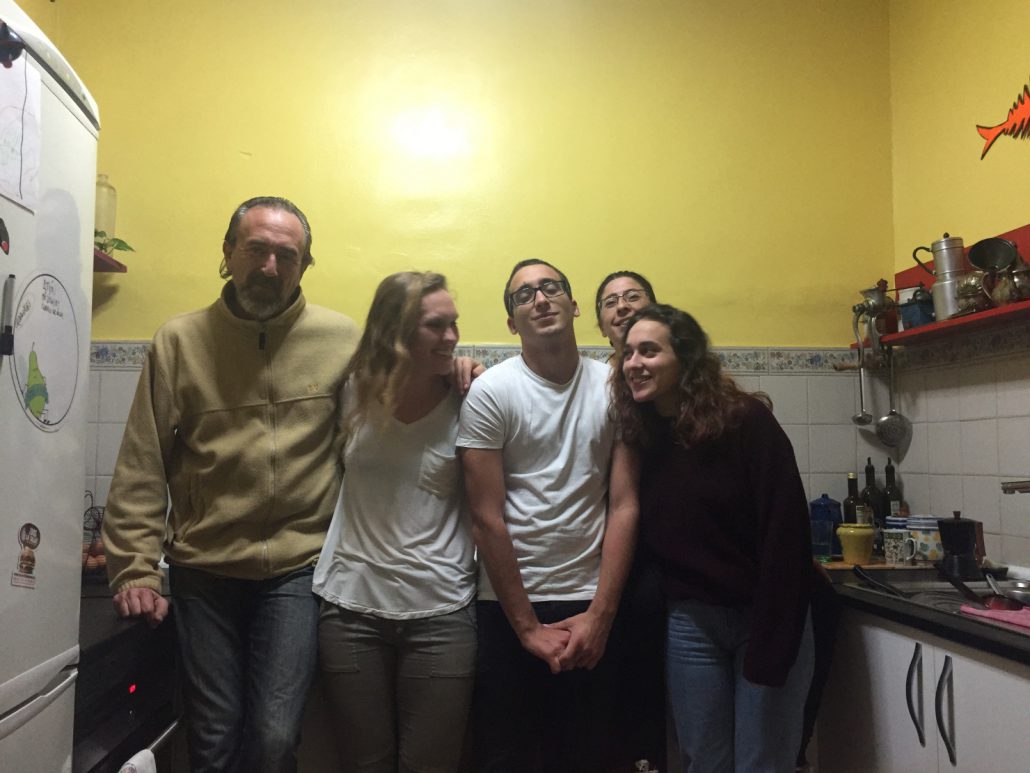
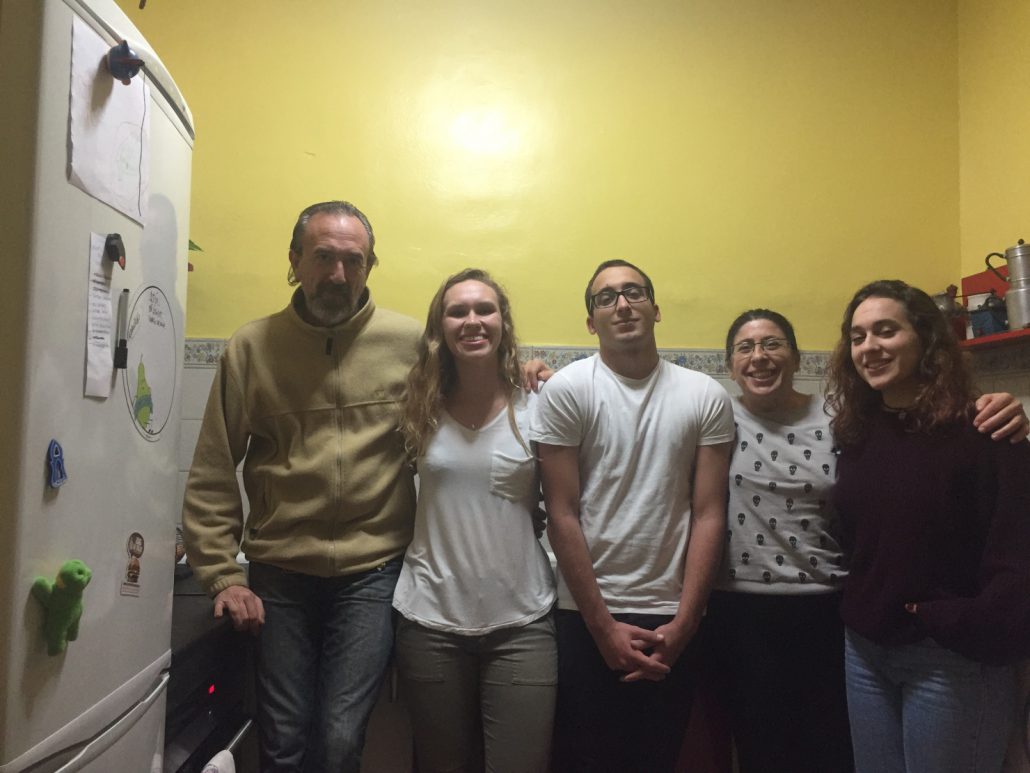
David, me, Pedro, pura, and Sofía in the kitchen of my homestay☺
Gracias a mi familia Española por todo, y gracias Madrid. There are difficulties and nuances that come with a homestay, but the benefits far outweigh the strains.
Nina Chikanov studied abroad in Madrid, Spain in fall 2017: http://eap.ucop.edu/OurPrograms/spain/Pages/contemporary_spain_madrid.aspx



